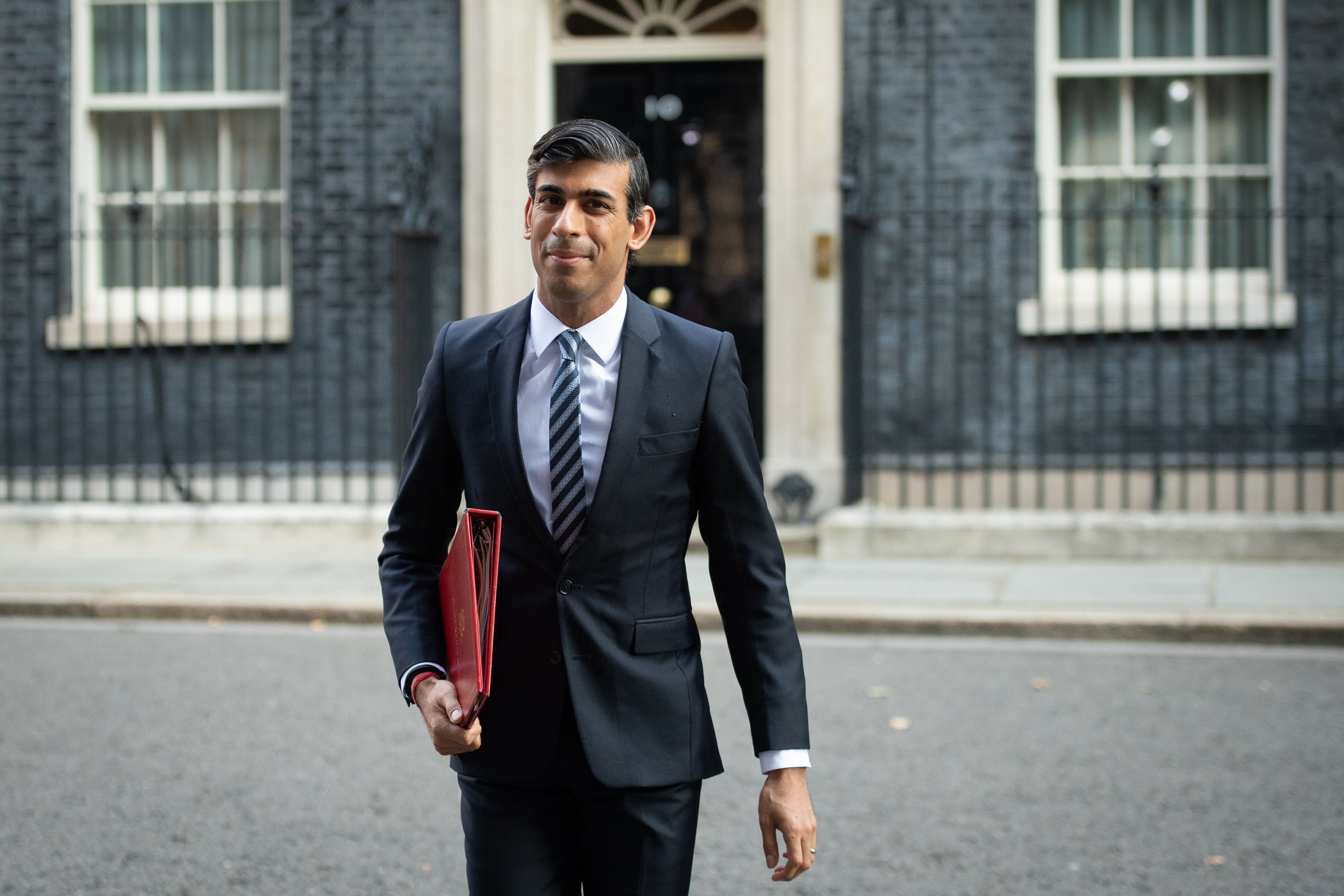Wanted: the fleet-footed, adaptable Rishi Sunak seen during the Covid-19 pandemic
The chancellor has remained resolute about the national insurance rise he and Boris Johnson agreed. It’s a plan but a bad one, argues James Moore


The proposed increase remains illogical and will be even more ill-timed given how circumstances have rapidly changed since it was announced.”
So said Stephen Phipson, chief executive of Make UK, which is the trade body of Britain’s manufacturers, about the planned national insurance rise.
Business groups have been busy getting in their pre-budget licks. Taxes, as always, are in their firing line.
However, they’re far from alone in raising questions about the Rishi Sunak and Boris Johnson’s decision to hike workers’ contributions by 1.25 per cent, with employers facing a similar burden.
Thanks to Vladimir Putin’s war, the world has taken a turn for the worse since it was announced, taking the global economy and the British economy with it.
The sanctions imposed on Russia are hurting its citizens (not that Putin likely cares) and its economy. But they will hurt the west too. That pain is unfortunately necessary to ensure their effectiveness as the tyrant sets Ukraine ablaze. The question facing the chancellor now is how to respond.
This brings us back to Phipson’s comments. He is quite wrong to argue that the increase is “illogical”. It is not so much that – as it was always going to be necessary to raise money to fix the NHS coming out of the Covid-19 pandemic, not to mention addressing social care given an ageing population. The chief problem is with the method: it hurts working people and especially younger workers, who have already been on the wrong end of a vast transfer of resources in the direction of their parents and grandparents.
It also protects the assets of wealthy homeowners in the south while penalising those in the north. So much for levelling up.
So while it is not illogical, it is unfair. Particularly given the vast reserves of wealth built up in the UK by some, which remain substantially insulated from tax.
Johnson has tended to respond with statements along the lines of “at least I have a plan” when challenged by Labour in the House of the Commons. Trouble is this is a bad plan. Ill-timed? Phipson is on much better ground there. The economy was already suffering from an inflationary surge before the outbreak of hostilities, with the cost-of-living crisis draining away household resources.
Not everyone was able to save during the pandemic and those who built up smaller pots may well have had them drained by now, with worse to come. Further hitting them with a tax hike in the middle of a crisis is simply wrong.
That’s likely true of employers, who are also facing a sudden and sharp increase in corporation tax. The government is fond of stating that it will be low by the standards of other big economies, even at 25 per cent (up from 19 per cent). However, as the Confederation of British Industry (CBI) has repeatedly pointed out, this analysis ignores the burden of other taxes, such as property value linked business rates.
Business has to be careful here. The support advanced to it by the taxpayer was significant – and widely called for – during the pandemic. The furlough surely benefitted workers, but also their employers, who had a ready-made workforce they could call back in as soon as conditions allowed. Then there were the rate holidays, cheap loans, and other measures. That needs to be recognised by the business community.
Still, the CBI proposal for a less generous version of the “super deduction” aimed at boosting business investment is worthy of consideration. The latter was wildly expensive. But there is evidence that it helped achieve some of its aims.
UK businesses have long lagged behind their G7 rivals when it comes to investment. So has the UK government but that’s one for another day.
Tweaking the business tax system to favour investment, with the aim of pushing the UK up the global league table, would be a worthy goal. Benefits would accrue from doing so. It represents good spending. The chancellor should think about it.
He has a lot of thinking to do. The world has, unfortunately, found itself in another crisis, this time one created by a very bad man as opposed to a very bad microbe.
Sunak’s reputation has taken a few hits of late, but during the pandemic he showed that he was capable of being fleet of foot and flexible. A little more of that wouldn’t go amiss right now.
He must be prepared to change policy to reflect a changed world.
Join our commenting forum
Join thought-provoking conversations, follow other Independent readers and see their replies
Comments
Bookmark popover
Removed from bookmarks